Does Low Testosterone Affect Fertility?

Testosterone is the hormone that causes men to be “male”. Testosterone is almost single handedly responsible for a boy’s development of muscle strength, bone density, deepened voice, body hair, competitiveness, sex drive and sperm production.
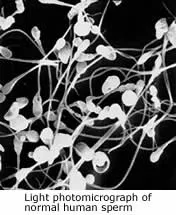
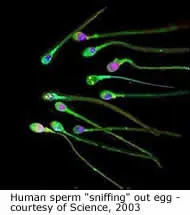
It makes intuitive sense that when a man has impaired fertility because of a low sperm count, giving him extra testosterone would benefit his fertility.This is a critical mistake many doctors continue to make.
Approximately 150,000 men every year are evaluated for impaired fertility. Oftentimes a low sperm count and low testosterone are found.
Such men are even more susceptible to the toxic effects of extra testosterone on their sperm production. Extra testosterone will stop a man’s sperm production and make his chances for fertility impossible!
Even giving testosterone in replacement doses, so that blood levels never are higher than normal, will halt sperm production. Testosterone has actually been administered to healthy men in low doses for the purpose of a male birth control.
There are medical conditions when testosterone replacement is highly beneficial-but restoring sperm production is never one of them. Fortunately, the impaired sperm production that extra testosterone causes is often reversible, but can take anywhere from 3 months to years.
Also Read: Does Low Testosterone cause Lack of Affection
What controls testosterone and sperm production?
The Physiology of testosterone regulation.
How can the same hormone be necessary for sperm production also cause sperm production to shut off when extra is given?
The pituitary-hypothalamic-gonadal axis is a complex circuit that controls testosterone and sperm production through two separate feedback loops. The pituitary gland and hypothalalamus live in the base of the man’s brain and produce the hormones GnRh, LH and FSH. LH stimulates the Leydig cells of the testis to make testosterone. The testosterone then gets out of the testis into the blood stream.
 |
When the blood levels of testosterone are normal, the brain stops secreting LH. When the blood levels of testosterone go down, the brain makes LH to stimulate the testes to make more testosterone.
Testosterone is required in very high concentrations within the testes for sperm to production to occur. So if a man receives outside testosterone, the pituitary gland will “think” the testes are making enough testosterone and stop stimulating the Leydig cells. When the Leydig cells stop making testosterone, the intra-testicular testosterone drops and sperm production stops.
Does the type of testosterone, mode of delivery, duration of administration and dose effect the chance to reverse to suppressive effects of testosterone?
The suppressive effect of testosterone is directly related to the dose and duration of treatment. The way testosterone is given, such a shots, pills or creams is not as important. All types of testosterone supplementation will shut off sperm production.
The most important factors determining successful return of sperm production is the duration of testosterone and dosage used. The extreme supplementation used by bodybuilders and athletes cause a profound suppression and loss of sperm producing cells. These are the most challenging patients to help regain their fertility.
These patients typically need every other day shots of HCG and an anti-estrogen for at least 3 months and often longer. The first thing any man who decreased his fertility by taking testosterone supplementation is to stop using the testosterone. Often, all that is needed is 3-6 months off the testosterone to restore fertility. The semen analysis is checked every 3 months for improved counts.
 |
Testosterone and Vasectomy Reversal or IVF
For the man who had a vasectomy, it is often difficult to know if and when his sperm production returns. Occasionally, the man will need a testicular biopsy to ensure sperm production has resumed, especially if vasectomy reversal or assisted reproductive technologies is being considered.
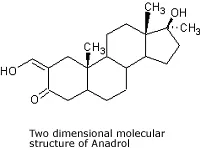
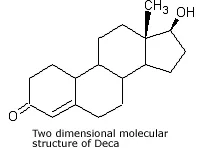
Testosterone as male birth control
In fact, testosterone has been used as an effective male contraceptive in many studies. Testosterone pills given to healthy fertile men so that their blood testosterone remains in a normal level suppresses their sperm production to the sterile level (no sperm production) within 3 months.
Fortunately, the majority of the men had total return of sperm production within 6 months of going off testosterone supplementation. The interesting side note is that with supplemental testosterone kept in the normal range, there were no side effects such as rage and heart disease.
IS TESTOSTERONE SUPPLEMENTATION EVER HEALTHY?
Andropause
If a man is not interested in producing sperm, then testosterone replacement can be very beneficial in men suffering from “andropause”.
Andropause is a syndrome when a man’s testosterone gradually drops to a level that he begins to lose some of his “male” characteristics. This process typically begins in the 40’s and becomes most pronounced in the 60’s. An estimated 10 million men suffer from andropause.
Exactly why some men’s testosterone begins to drop to levels that affect his most basic interests is unknown.
Common symptoms include loss of libido, decreased energy, poor sleep, weight gain, decreased competitiveness and erectile dysfunction. Any man with these symptoms should be offered a blood test for testosterone, free testosterone, estradiol, DHEA and prolactin.
The goal of testosterone replacement therapy is giving enough testosterone to maintain normal blood levels and reverse the low testosterone symptoms.
The most popular forms of testosterone replacement include bi-monthly shots or daily patches or gels. All modes of delivery work well at restoring low testosterone levels. A man may need to experiment with one or two until he decides which type of testosterone right for him.
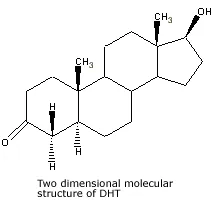
What should be tested before beginning testosterone replacement?
Prior to beginning testosterone replacement therapy, the man needs to have a baseline urologic exam and PSA blood test.
As testosterone stimulates prostate growth and fuels any existing prostate cancer, all men prior to beginning testosterone replacement therapy need to be screened for prostate cancer and prostate enlargement symptoms.
In addition, men with sleep apnea and breast cancer should never receive testosterone for fear of exacerbating either condition. Once a man has his baseline studies and is deemed a good candidate for replacement, he needs his PSA and testosterone levels checked at the 3-month mark.
If the blood testosterone increases to a normal level and the PSA increases by less than .4 ng/dl, then therapy can continue safely.
While on replacement testosterone, a man should have his PSA checked twice a year rather than once a year. This will improve detection of prostate abnormalities. If the man while on adequate replacement does not have reversal of his “andropause” symptoms, then a low testosterone was not the source of his problems. Other possible sources for “andropause” type symptoms include hypothyroidism, depression and stress.
